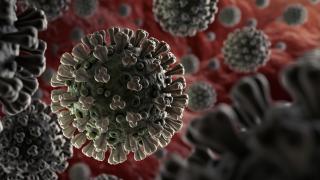Do we know how COVID-19 affects cancer patients?
We are still learning how this virus may impact those who have cancer. So far, data from China suggests that patients with cancer have the highest risk of complications. This includes events such as admission to the ICU, need for ventilator support and poor outcomes. The risk is higher in patients with more than one chronic medical condition.
Are all cancer patients at risk, or only those currently undergoing treatment?
Should I be washing my hands or using sanitizer/wipes more often than others? Is there a special sanitation regime I should be undertaking?
Hand washing for 20 seconds with soap and water or the use of alcohol gel/sanitizer with a greater than 62% alcohol content on a regular basis is recommended. Touching of the face, eyes or nose with unclean hands is strongly discouraged. When in shared spaces, wipe down surfaces such as desk, chairs, doorknobs, tabletops, airline seat/table (travel is discouraged!) with disinfectant or antiseptic wipes.
Do I need to wear a mask?
Should I keep my follow-up appointments, or is it better to avoid the hospital for the time being?
If you are doing well and are asymptomatic, consider contacting your doctor to determine if routine follow-up is necessary at this time. Avoiding a hospital visit would limit your risk. If you have mild symptoms of fever, runny nose and cough, please stay at home, as you would do for the common cold. However, if you have worsening symptoms or shortness of breath, then contact your doctor and seek medical attention (call ahead so the team can be prepared to take care of you).
All necessary visits and treatment as scheduled by your doctor should be kept, unless you meet one of the above criteria.
If I have chemo or a BMT scheduled, should I postpone it?
If you have no symptoms and feel well, with no exposure history, the treatment can continue without interruption (as determined by your doctor). Postponing a BMT must be decided by your transplant doctor.
What should I do if a family member develops symptoms?
How will I be able to tell if I have COVID-19 or just the cold or flu?
It will be difficult to distinguish one viral infection from another when experiencing a mild illness, especially with no recent travel history or contact with someone known to have COVID-19. If your symptoms worsen or you develop shortness of breath, you will need routine tests for infection (e.g., influenza) and COVID-19.
Should cancer patients avoid public transportation, travel and events? What about survivors and caregivers? Is it safe to leave home at all?
Social distancing is recommended for our patients to limit the risk of acquiring COVID-19. This includes limiting crowded and closed spaces — these scenarios include a crowded bus or train, movie theaters, malls, sporting arenas, restaurants, etc. Travel should be limited such as air travel and particularly cruise ships. Cancer survivors may have some lingering immune deficits and may be at risk for serious disease even years after stem cell transplantation. It is important to contact your doctor with any questions.
However, this does not mean that you cannot leave home. You may plan to take walks around the neighborhood and go grocery shopping during off-peak hours if it cannot be done by someone else — bring your own grocery bags, disinfect cart handles, and wash hands or use hand sanitizer after using the cart. The most important aspect is prevention; hand hygiene is critical.
Are there ways to boost the immune system?
Get a good night's sleep — lack of sleep has been associated with weakened immunity. There is no substitute for healthy meals — make sure you are eating lots of vegetables and fruits. There is no proven role of supplements; however, if someone chooses to use supplements such as vitamin C, it is unlikely to be harmful. Exercise will keep you strong and conditioned, but avoid gyms.
How can I deal with my anxiety over this virus?
It is most likely that this virus will be circulating in the community for some time, increasing the likelihood of acquisition. However, by employing frequent hand hygiene, environmental disinfection, social distancing (including of family members if they are ill) and avoiding travel and crowded places, you can minimize the chances of contracting COVID-19. We also have a strong team of supportive care experts who can provide support as needed.

